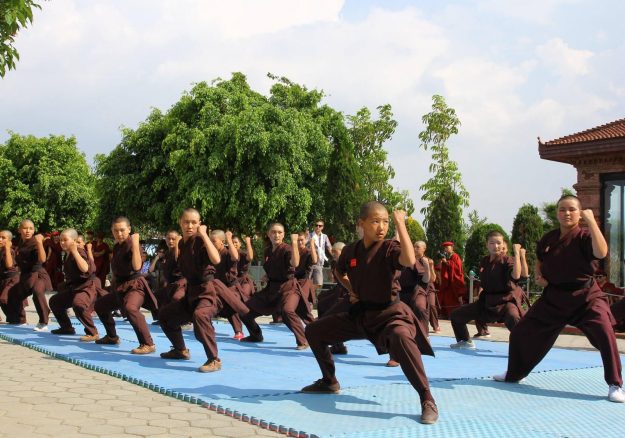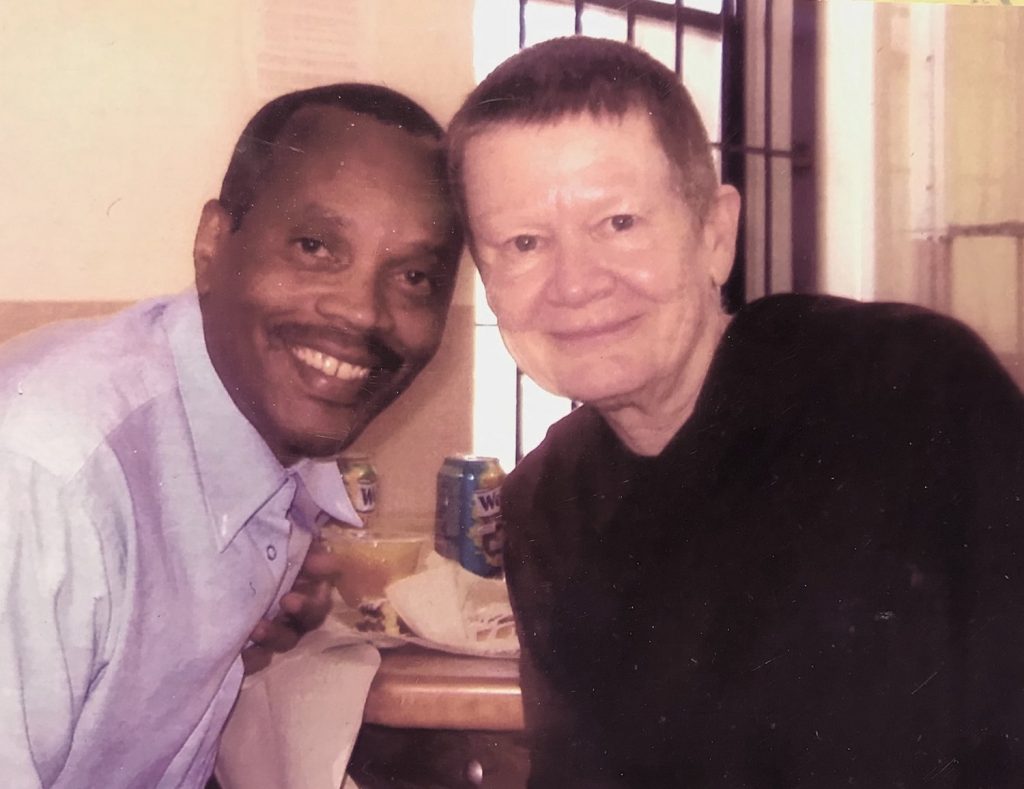Nothing is permanent, so everything is precious. Here’s a selection of some happenings—fleeting or otherwise—in the Buddhist world this week.
“The Buddhist on Death Row” Ends Hunger Strike
Jarvis Jay Masters, the subject of the new book The Buddhist on Death Row and author of Finding Freedom: How Death Row Broke and Opened My Heart, has ended his hunger strike in protest against a wave of phone restrictions at San Quentin State Prison, where he has been incarcerated since 1981. On September 18, Masters started refusing food to raise awareness about a new policy that cuts death-row inmates’ phone use from 3.5 hours each day to only two hours a week, according to the group Free Jarvis: The Campaign to Exonerate Jarvis Jay Masters. Jarvis said that the new rules curtail inmates’ contact with attorneys, family, and friends and exacerbate the suffering brought on by the pandemic. After meeting with an associate warden on October 7, Jarvis ended his strike; arrangements are now being made to allow for equal distribution of phone access.

Kung Fu Nuns Receive Unsung Heroes Award
The Kung Fu nuns, Tibetan Buddhist renunciants known for teaching self-defense to Himalayan girls and women, will receive an Unsung Heroes Award for their work in gender equality, environmentalism, and humanitarian aid, according to a press release from Live to Love International, the nonprofit group founded by their root teacher Gyalwang Drukpa. The Atlantic Council, an organization that promotes constructive leadership and engagement to solve global challenges, chose to honor the nuns, whose martial-arts practice challenges centuries of restrictions on women monastics. The award also honors the nuns’ various relief efforts, which includ running free health clinics, cleaning up plastic litter from Himalayan and Indian land, delivering critical aid after the 2015 Nepal earthquake, and providing food, supplies, and hygiene education to neglected Nepalese and Indian villages throughout the COVID-19 pandemic. “This is an incredible honor,” said 27-year-old nun Jigme Rupa Lhamo. “In the Himalayas, help doesn’t always come, especially for young girls. We want to show everyone we can be our own heroes.”
Twenty People Killed in Thai Bus Accident
Twenty people were killed and thirty injured in Thailand on Sunday when a train collided with a bus heading to a Buddhist temple, CNN reported. The bus was crossing train tracks near the Khlong Kwaeng Klan railway station, about forty miles east of Bangkok, when it was hit by the train, which remained on the rails. Maitree Tritilanon, governor of the province where the crash occurred, said the railway crossing had an alarm but no barriers to block traffic when a train is approaching. The province, Chacheongsao, plans to install speed bumps and barriers and to cut down trees near the crossing to improve visibility with the hope of preventing another tragedy.
Thich Nhat Hanh Turns 94
Thich Nhat Hanh celebrated his 94th birthday—what his followers called his “Continuation Day”—on Sunday. Plum Village, an international network of sanghas founded by the Vietnamese Buddhist monk, shared stories of gratitude submitted by people inspired by “Thây” (Vietnamese for “teacher,” a name of affection used by his followers) on its website. Last week, reports that Nhat Hanh had ceased eating circulated on social media. Plum Village said in a statement that his health “remains stable” and there was “no immediate cause for concern.” In 2014, Nhat Hanh suffered a severe brain hemorrhage. He now lives at his root temple Tu Hieu, in Vietnam’s Hue Province, and is cared for by close disciples.
Thank you for subscribing to Tricycle! As a nonprofit, we depend on readers like you to keep Buddhist teachings and practices widely available.
